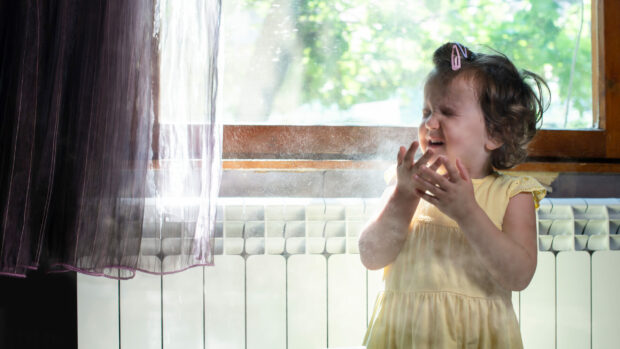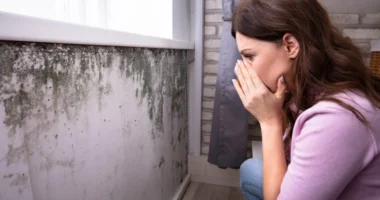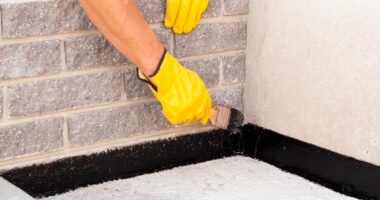Ever wonder how many germs can gather on a family room floor? Experts estimate millions. That is a huge number. Parents often feel concerned about indoor pollution. Loved ones breathe air that might contain dust mites and other hazards. Kids deserve a neat area. They rely on grownups to provide it. But confusion arises. Steps for a tidy home can seem like a giant task.
Bacteria exist on countertops and in corners. Toxic particles linger in musty corners. Inadequate ventilation causes stale air. Mold spores creep behind wallpapers. Mess spreads quickly when kids move around. Few guardians enjoy constant chores. That is understandable. A child-friendly space does not require nonstop scrub work. It benefits everyone when the home is safe and pleasant.
Parents who follow proven practices can see immediate results. Careful product choices protect health. Proper air flow helps big time. Reasonable methods keep dust at bay. Kids thrive when they can move, learn, and explore in a fresh spot. A bit of strategy can pay off.
Key Points:
- Safe product selection for toxin-free spaces.
- Smart organization to reduce clutter.
- Air quality improvement for better breathing.
- Surface sanitization to minimize germs.
- Family involvement for long-term habits.
- Practical maintenance steps for lasting effects.
A Simple Approach to a Clean, Healthy Home Environment for Your Kids
Many parents worry about germs. Others feel unsure about product choices. An option can involve professional assistance. Homeowners who search for home cleaners near me often find expert help. Specialists can tackle tough spots. That frees up precious time. A guided approach saves energy. Families can see better results without guesswork.
A good method also involves daily upkeep. Tidy floors reduce dust buildup. Quick wipe-downs of high-touch surfaces lower germ spread. Children love to roam. They play on carpets and sofas. Extra care for floors can limit allergens. Minimal exposure to toxins promotes a safe atmosphere. Proper ventilation also matters. Open windows on clear days. Let fresh air flow throughout each room. Keep humidity in a moderate range. That discourages mold growth.
Pro Tips:
- Open windows for at least 15 minutes each morning.
- Use a damp microfiber cloth instead of dry dusters.
- Avoid synthetic air fresheners. They release unnecessary chemicals.
- Use natural plant-based cleaners for safer results.
Why a Tidy Space Matters for Kids
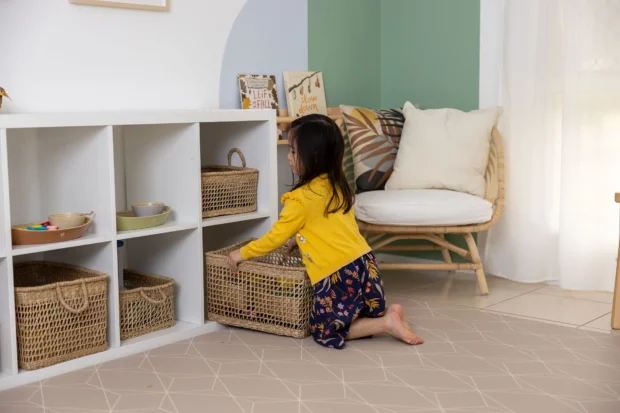
Children love to explore. Sticky fingers touch every surface. Tiny toys scatter across floors. Piles of clutter invite dust. Respiratory issues can arise in a neglected space. A systematic approach protects little ones. A tidy home fosters calm vibes. Peace of mind boosts the mood. Everyone rests easier in a neat household.
Key Benefits:
- Better air quality prevents allergies and asthma.
- Clutter-free rooms promote mental clarity.
- Fewer germs mean fewer sick days.
- Organized spaces allow kids to find toys easily.
Key Elements of a Proper Area
- Regular vacuum sessions on carpets or rugs. Dust hides in fibers. A strong suction device removes deep dirt.
- Gentle product choices with fewer harsh chemicals. Avoid bleach-based formulas.
- Careful removal of mold threats in damp corners. Spot-check windows and basements.
- Frequent bed sheet changes to lower dust mites. Weekly washing makes a difference.
- Quality air purifiers in each major room. Filters trap unseen particles.
Tactics for a Germ-Free Atmosphere
Soap and water can do wonders. Antibacterial wipes come in handy for door knobs and light switches. Frequent disinfection of kitchen counters prevents cross-contamination. Replace sponges on a regular schedule. Old sponges collect bacteria.
Practical Example:
- Instead of using paper towels, switch to washable cloths. That cuts waste.
- Store a spray bottle with diluted vinegar in key areas. It works well for quick wipe-downs.
- Keep a small vacuum in high-traffic areas for daily maintenance.
Strategies for Fresher Air
Open windows on pleasant days. Allow a gentle breeze to sweep away stale fumes. Improve airflow with a fan or two. Houseplants add life. Some species help filter toxins. A dehumidifier can deter mold. Dry air helps curb mildew.
Recommended Steps:
- Place a fan near windows for optimal circulation.
- Keep furniture a few inches away from walls to prevent mold buildup.
- Invest in an air purifier with a HEPA filter.
- Add activated charcoal bags in musty areas to absorb excess moisture.
Boost Wellness with Smart Product Choices
Some families worry about fumes in common sprays. Green alternatives exist. Natural brands rely on ingredients like vinegar or essential oils. That approach can protect sensitive lungs. A mild formula is often enough for day-to-day tasks. A non-toxic route also supports a healthy lifestyle. That leads to fewer doctor visits and happier kiddos.
A Family Routine That Works
Children can help with small chores. A sense of responsibility grows at a young age. A simple chart with stickers can encourage them. Wipe tables with a damp cloth. Sort toys into bins. That feels manageable. A fun approach prevents boredom. Offer praise after each task. That encourages future participation.
Pro Tips:
- Let kids pick their own cleaning tools, like colorful dusters.
- Make chores into a game. Set a timer and see who tidies up fastest.
- Reward consistency with extra storytime or a small treat.
A Stress-Free Routine for Parents
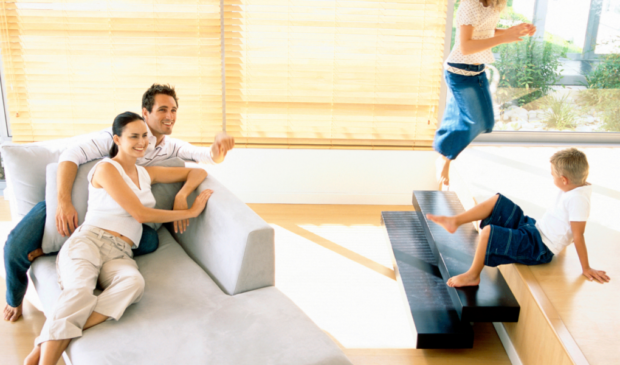
Parents often juggle work, errands, and soccer practice. Time is limited. Quick tasks fit better than marathon sessions. Consider a daily five-minute pick-up in each room. Wipe counters after meal prep. Dust shelves on weekends. Tackle laundry on set days. One small step repeated often leads to a neat outcome.
Daily Quick Task List:
- Morning: Make beds, open windows, wipe bathroom counters.
- Afternoon: Load the dishwasher, tidy up living spaces.
- Evening: Sweep floors, prep for the next day, fold laundry.
Final Thoughts on a Clean, Healthy Home Environment
A consistent approach can transform any house. Children thrive in a home that prioritizes neat conditions. A commitment to regular upkeep builds strong habits. A safe zone fosters development and exploration. A clean place also supports good health. A healthy routine helps minds and bodies. An organized environment helps concentration and relaxation. Everyone benefits when small steps form a major difference.
Adults deserve a neat retreat at the end of each day. Children feel calmer when chaos is minimized. Guests notice a pleasant vibe. A schedule that tackles small tasks allows more relaxation. No parent wants endless scrub work marathons. A well-managed household paves the way for cherished family memories.

